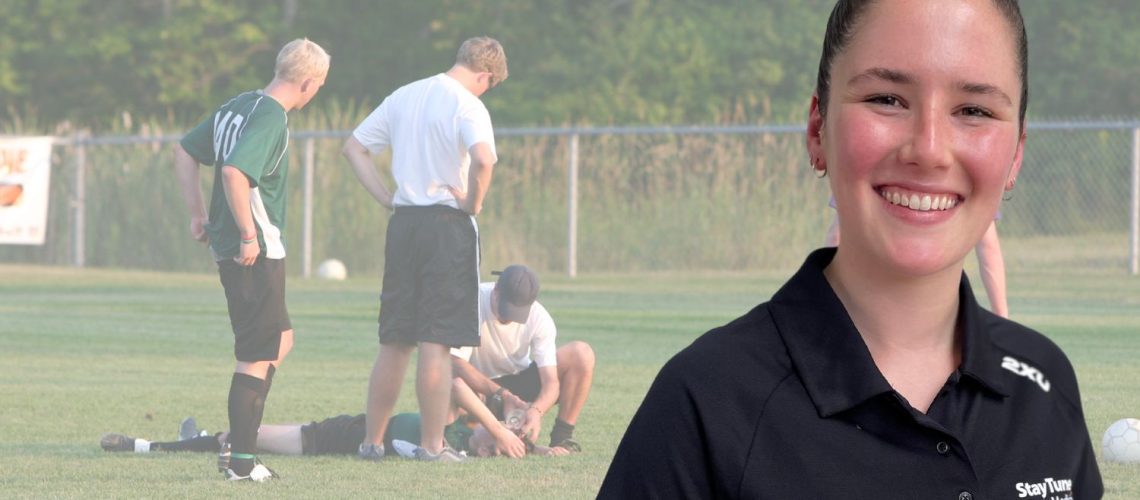As someone who’s been in the trenches as a player, sports trainer and osteopath, I’ve seen my fair share of injuries – from the everyday sprains to the more serious, sneaky concussions. Whether it’s on the footy field or the rugby pitch, the reality of high-contact sports means that concussions are a constant concern. In this article, we’re diving into the world of concussions – what they are, how to spot them, and why it’s so important for players, coaches, and everyone involved to know the score.
Table of Contents
What is a Concussion?
Concussions occur when the brain moves suddenly. They generally result from a knock to the head, face, or neck, but they may be anywhere on the body that transmits force to the head. This sudden movement can cause the brain to bounce around or twist in the skull, creating chemical changes in the brain and sometimes stretching and damaging brain cells. Concussions in sports are typically considered mild traumatic brain injuries (or TBI) but can vary in severity.
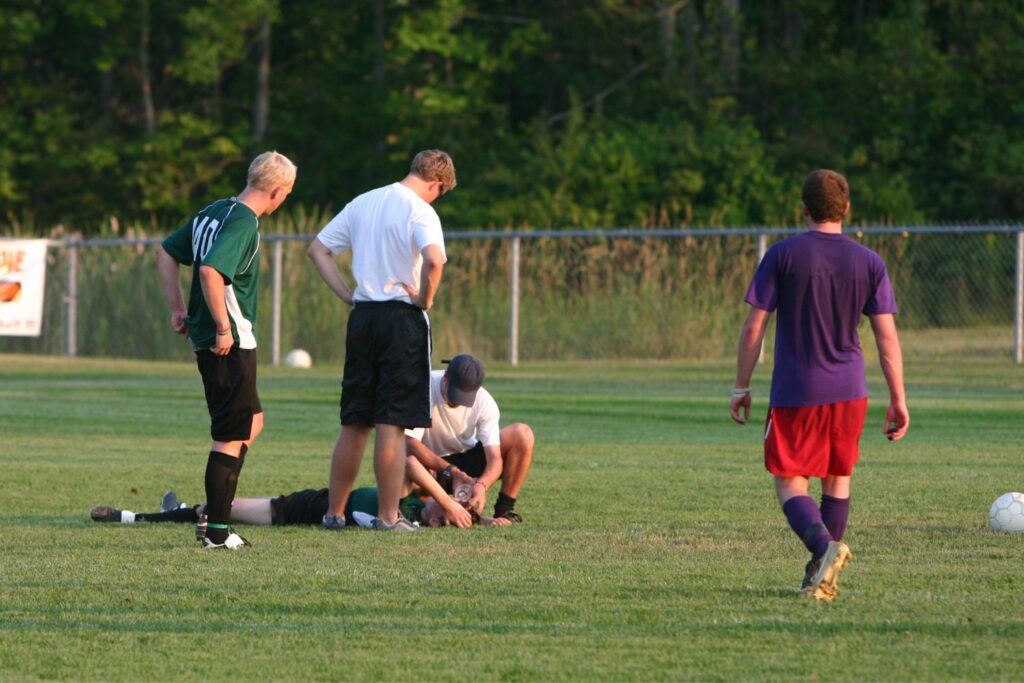
Signs and Symptoms of a Concussion
Sudden movements of the brain can subsequently lead to changes in neurological function. These changes can present in a range of signs and symptoms, such as:
| Concussion Signs | Concussion Symptoms |
| – Can’t recall events before or after a hit or fall. – Appears dazed or stunned. – Forgets an instruction, is confused about an assignment or position, or is unsure of the game, score, or opponent. – Moves clumsily. – Answers questions slowly. – Loses consciousness (even briefly). – Shows mood, behaviour, or personality changes. | – Headache or “pressure” in the head. – Nausea or vomiting. – Balance problems, dizziness, or double or blurry vision. – Bothered by light or noise. – Feeling sluggish, hazy, foggy, or groggy. – Confusion, concentration or memory problems. – Just not “feeling right” or “feeling down”. |
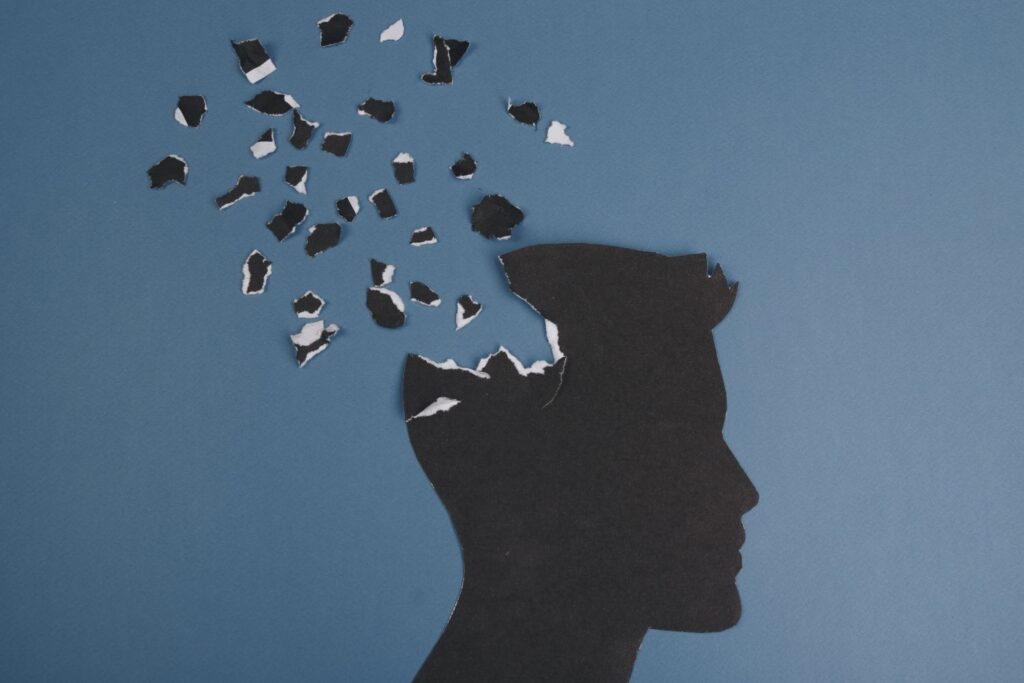
Symptoms of concussion can occur rapidly following a collision that can involve a blow, bump, or jolt to the head. However, it is important to note that concussions don’t only occur from direct trauma to the head. They can occur when the head rapidly moves backward and forward, such as with a blow to the body or during a fall. Concussion symptoms can be immediate or delayed and can last for several days. A small percentage of people experience concussion symptoms anywhere from a couple of weeks to years.
Concussion Prevention Strategies
To mitigate the risk of concussions, proactive measures should be taken both on and off the field:
- Coaches and athletes should prioritise proper technique training to minimise the likelihood of high-impact collisions during gameplay.
- Sports leagues and governing bodies play a vital role in implementing and enforcing rules that promote player safety, such as penalising dangerous plays that increase the risk of concussions.
- Equally important is fostering a culture of awareness and responsibility among athletes, coaches, and parents, encouraging them to report symptoms and prioritise safety above all else promptly.
Suspected Concussion? What should you do?
Seek care from a qualified health professional, such as your local GP, who can diagnose concussions. In addition to resting for 24-48 hours after sustaining a concussion, there are several things that you should avoid with a suspected concussion, including:
- Avoid driving or operating heavy machinery.
- Avoid consuming alcohol
- Avoid aspirin, anti-inflammatories (Ibuprofen/Nurofen), sleeping tablets, and sedating pain medications.
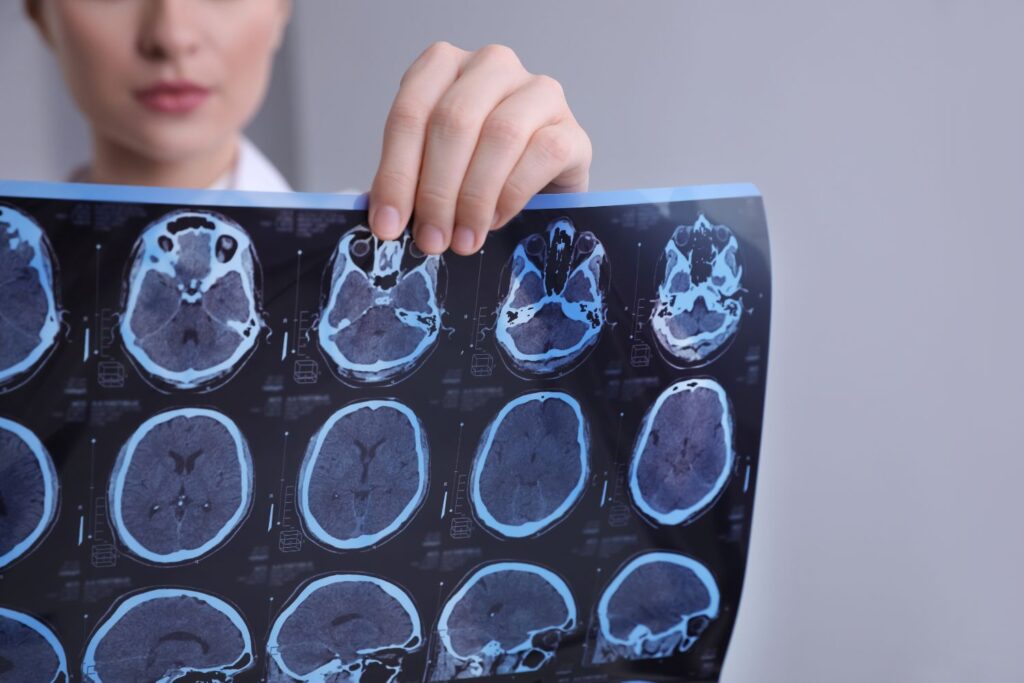
Long-Term Concussion Effects and Risks
While concussions are often considered mild traumatic brain injuries, their long-term effects can be significant and sometimes debilitating. Research has shown a potential link between repeated concussions and the development of chronic neurodegenerative conditions, such as Chronic Traumatic Encephalopathy (CTE).
Furthermore, individuals who have sustained multiple concussions may be at an increased risk of experiencing cognitive decline, mood disorders, and other neurological complications later in life.
It is crucial for athletes, healthcare professionals, and the broader community to recognise the potential long-term consequences of concussions and take proactive measures to mitigate risks through proper prevention, management, and ongoing monitoring of symptoms.
Concussion Treatment strategies
Managing prolonged concussion symptoms, such as visual disturbances, balance disturbances and headaches, can require a multifaceted approach aimed at reducing symptoms and improving overall function. Potential approaches can include pharmaceutical management, complementary therapies, and specialists.
Allied Health Services such as Osteopathy can provide exercise therapy, manual therapy, vestibular therapy and education to reduce recovery times and return to sport. Nutritionists and dietitians can also review your diet and implement changes to support your recovery. For example, incorporating foods rich in magnesium, zinc, folate, choline, omega-3s, antioxidants, and protein can aid in healing the brain after a concussion.
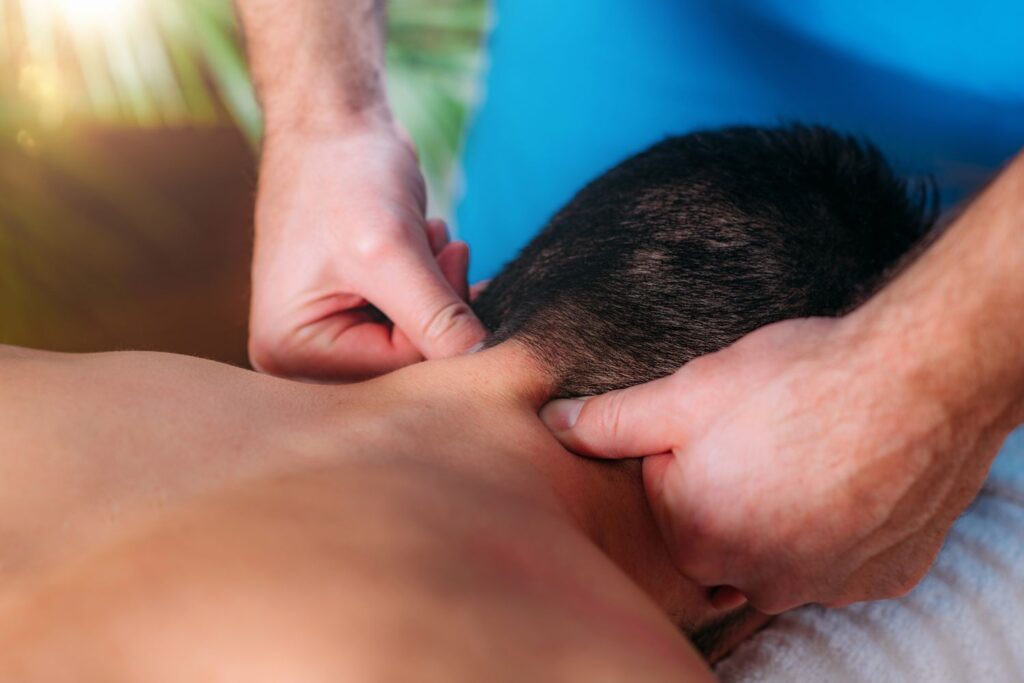
Return-to-Play Protocol
Following a concussion, a structured and gradual return-to-play protocol is essential to safeguard the health and well-being of athletes. This protocol typically involves several stages, each with increasing levels of physical activity, monitored closely by healthcare professionals. Athletes are cleared to return to full participation once they have successfully completed each stage without experiencing a recurrence of symptoms. This process usually takes several weeks, not days.
This approach ensures that athletes are fully recovered and at a reduced risk of re-injury before resuming competitive play, preventing potential complications and long-term consequences associated with premature return to activity. Remember, if in doubt, sit them out.
Dr Emily Sandman
Osteopath, Group Exercise Rehab Instructor
(BHlthSc BAppSc (Osteopathy), Member O.A)
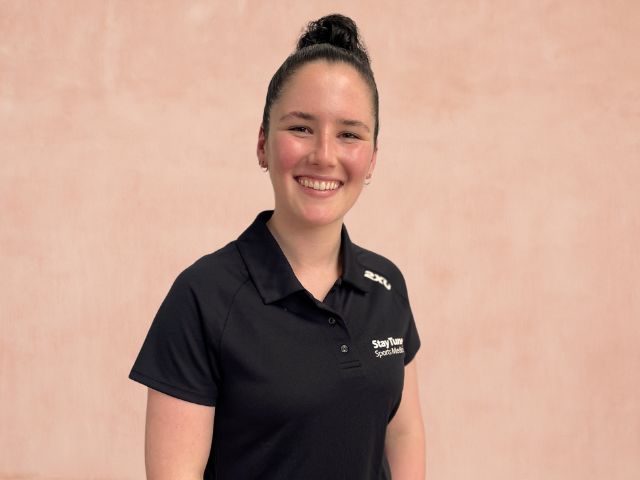
Want to learn more? Our practitioners are here to help; click here to make a booking.
Additional Resources
- https://www.liebertpub.com/doi/full/10.1089/neu.2019.6884
- https://www.cdc.gov/headsup/pdfs/providers/facts_about_concussion_tbi-a.pdf
- https://www.concussioninsport.gov.au/medical_practitioners/link_listing/how_to_manage_concussion
- https://www.ncbi.nlm.nih.gov/pmc/articles/PMC9614271/
- https://qbi.uq.edu.au/concussion/how-long-does-concussion-last-long-term-effects

